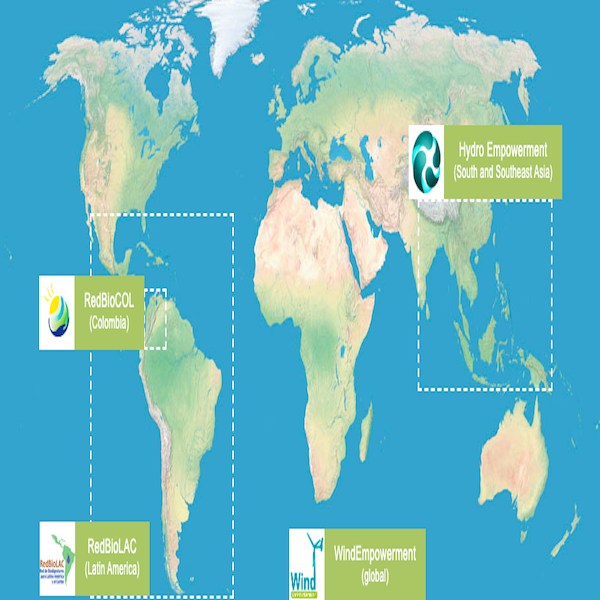In Trelew, Chubut, the students from the local Technical School have installed a new wind-solar hybrid system, capable of providing opportunity for energy self-sufficiency in the rural community.
Stronger together: why South-South networks of local energy practitioners matter for SDG 7
Local organisations (whether for-profit or non-profit) across the Global South are the secret behind every successful sustainable energy access project. Their work in the field and within communities equips them with the in-depth knowledge and hands-on training to make sustainable energy projects work in the long term. At the same time, these local organisations often have only limited opportunities to share their experiences with their peers or with other stakeholders.
Sharing experiences with peers is an extremely effective way of climbing the learning curve and developing the industry but peer-to-peer networks of decentralised energy practitioners are still scarce across the Global South. The CLEAN network and AMDA are examples of regional and national initiatives that aim to support the growing sector by connecting local organisations so they can learn from each other and work collectively to find solutions for common problems. Since 2009, WISIONS has supported the bottom-up development of four dynamic networks:
- RedBioLAC: the only network of its scale bringing local biogas practitioners together across Latin America and the Caribbean;
- RedBioCOL: a bioenergy network in Colombia and the only WISIONS network with a solely national focus;
- Wind Empowerment: a network with a global scope focused on small-scale wind practitioners;
- Hydro Empowerment Network (HPNET): the largest of the four WISIONS-supported networks, focused on community micro-hydropower practitioners in South and Southeast Asia.
Together these networks actively involve over 300 organisations from across the Global South who share a long-standing commitment to sustainable energy solutions. Working remotely and in-person, their members contribute to and benefit from network working groups, regional or national face-to-face meetings, training and knowledge resources.
Our experience shows that investing in local practitioner networks yields results over and above building capacity in technical and business skills. Impacts of the networks on the ground include the development of standards, guidelines and tools, open source innovations customised to local conditions, and collaborations and alliances. Networks also give a common voice to the sector and can advance advocacy for their emerging sectors at different policy and decision-making levels.
Networks are also empowering. The “I am not alone” feeling is recognised as one of the key impacts that networks have on local practitioners, inspiring members and enabling them to meet organisations and individuals who share the same challenges and goals.
With increasing reach and experience, South-South energy access practitioner networks are developing their roles and demonstrating their impact. The policy agenda increasingly recognises that building capacity locally is crucial for ensuring the long-term success of sustainable energy projects. However, the benefits of peer-to-peer exchange approaches and South-South networks remain underexploited, with existing networks struggling to mobilise the necessary resources and with much room remaining for more networks in the space.
The key elements, objectives and activities of the WISIONS partner networks are described in our brochure, Energy Practitioner Networks. We also held a webinar on the topic.


